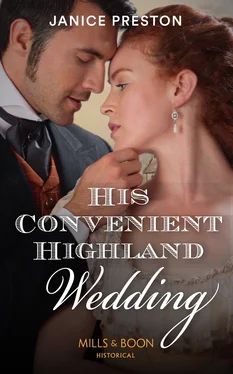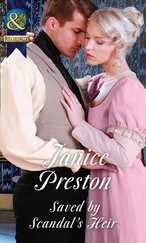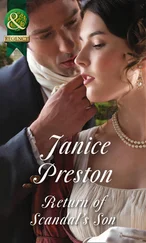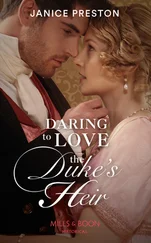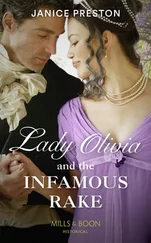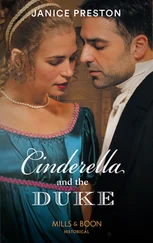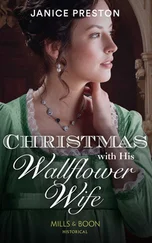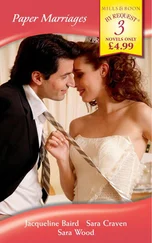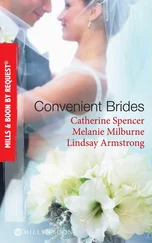‘No. It had been lost a long time.’
There. It was done. He straightened. ‘How would you know how long it had been lost?’
She slanted him a look from those green eyes. ‘I went exploring in a forbidden part of the castle.’
She bit her lower lip, staring at him. ‘No one but my father was allowed there, but I went anyway. It was thrown aside...discarded among a heap of...’ She paused. Then she tilted her chin. ‘A heap of old rags.’ Her eyes slid from his to Bandit as she fondled his ear.
He really was a disreputable-looking animal—one ear pricked, one drooping; a scruffy, wiry white coat; and those black eye patches that really did give him the look of a bandit. The dog seemed to sense his regard. He raised his head and stared back, almost defiantly, although that seemed almost ridiculously fanciful.
He had enough attitude for himself and his mistress combined. Lachlan broke eye contact first and looked back at Flora, whose attention was still on Bandit. She often seemed wary of speaking her mind, but that tale of defying her father gave him hope she was not as timid as she appeared. He was under no illusions about himself—he’d lived a harsh life, among hard men, and it had shaped the man he had become: self-sufficient and tough. There was no place in his life for a bride easily intimidated, or one who needed to cling to her husband. He had no wish to get too close to anyone, not even his wife.
He had at least diverted her from the subject of his painful, shameful past. Flora need never know about that. He intended to put it firmly behind him. Just as soon as he had tracked down Anna.
* * *
It was late afternoon before the carriage turned off the road on to a track that led steadily upwards through ancient woodland of oaks and birches wearing the russet hues of autumn. To their right the land shelved steeply away from the track and Flora caught glimpses of the blue-green waters of a loch, far below.
‘That is Loch Arris. We are nearly home.’
‘What made you buy Lochmore Castle?’ Flora asked on impulse. ‘Why not a castle linked to the McNeill clan?’
Lachlan shrugged. ‘The McNeills’ seat is Barra in the Outer Hebrides but my father never lived there. Lochmore is near enough to Glasgow for me to see to business and, as I said, there is that rumour of that long-ago link between the Lochmores and my branch of the McNeills. It seemed fitting.’
Ahead, Flora could see a gatehouse built of grey stone, with smoke curling from the chimney, next to a square tower that straddled the carriageway.
‘Who lives there?’
‘Gregor and Brenda Fraser—Gregor is the manager at my distillery. The original outer curtain wall is lower than it once would have been, but I believe the gatehouse and the tower are much as they would have always been.’
The light dimmed as they passed beneath the tower and then brightened as they emerged into what would once, presumably, have been the outer bailey with stables over to the right and what looked like an old chapel to the left. Beyond the stables were a vegetable garden and glasshouses, and the remainder of the ground was grass, dotted with trees and evergreen shrubs.
Craning her neck ahead for a view of her new home, Flora saw another square tower, built of the same grey stone as the gatehouse, but looming four storeys into the sky, its walls punctuated by mullioned windows. They drove through an opening in another low wall.
‘This was the inner bailey,’ said Lachlan, ‘and that is the old keep.’ He pointed at the massive stone tower. ‘And that—’ he gestured out of the opposite carriage window, to their left ‘was the great hall, which was remodelled into a ballroom by the current Duke of Lochmore’s first wife. She also had a modern wing constructed, to link the keep and the ballroom.’
It was not until the carriage came to a standstill in the gravelled forecourt and Lachlan handed her from the carriage that Flora truly appreciated the size of the castle and she gasped out loud. Lochmore would swallow Castle McCrieff twice over. Even Bandit seemed overawed and clung close to her.
Three wide stone steps led up to the imposing front door, protected by a portico supported on fluted columns. The newer wing boasted large windows and the ballroom, jutting forward at a right angle, had been modernised by the addition of three sets of glazed French windows that overlooked a narrow terrace and a knot garden.
She gazed back towards the gatehouse and the inner and outer walls. In days gone by they would have stood firm against attack and siege, she knew, and she shivered, grateful such brutal feuds between warring clans were long past. The clans today lived in peace despite the occasional still-rumbling grudge, but the many castles scattered throughout the Highlands—both occupied and in ruins—bore testament to its troubled history.
She became aware of Lachlan’s scrutiny.
‘Have you never been here before?’
‘I have not. I told you, the McCrieffs and the Lochmores are old foes, even though the Lochmores have tried in the past to cool the bad blood between them.’ Including the attempt to marry Flora’s Aunt Tessa to the current Duke of Lochmore after his first wife died. ‘I am amazed my father came here at all—the McCrieffs’ memories are long and their grudges are deeply held.’
Lachlan’s eyes glinted as he smiled at her. ‘I shall remember that, Flora.’
His smile did funny things to her insides, but she soon forgot them as she realised the size of the task facing her: a husband who was a stranger, but who nevertheless imagined she had enough influence to ease his path in society; a huge castle that would no doubt take a mountain of money and effort to maintain; neighbours and workers who might very well resent a McCrieff becoming mistress of Lochmore.
‘Are the servants members of the Lochmore Clan?’
‘A few are locals who have worked here for years, but I also hired several from Glasgow.’
‘Glasgow? But...what will they know about Highland life? And working in a castle?’
He frowned. ‘Every one of them is a Highlander, from various clans. They, or their parents before them, were forced to move to the city in order to survive when they were turned off their land. They may not have worked in a castle before, but they are keen to learn and to earn their living. Jobs give people self-respect and they are proud people.’ His frown deepened. ‘We talked about the plight of the people earlier—why I need my whisky to succeed, for those who rely on me for their living. Starvation and disease are rife in the Highlands now the potato crop has failed again.’
In truth, Flora hadn’t fully understood his meaning. She had little idea of what had been happening in the rest of Scotland, outside of the area in which she had grown up. Her father did not believe womenfolk should be concerned with politics. All Flora had known was her family’s dwindling fortunes and the loss of several local families as they left to seek a better life elsewhere. She was fortunate. She was not, and never had been, starving.
‘I expect the workers to be treated with respect, even though their backgrounds are not the equal of yours.’
She raised her chin, offended. ‘I always treat the servants well. I am not about to change now.’
His comment stirred her curiosity about his past. She knew nothing about him, other than that his intense stare sometimes made her insides quiver and that his smile was rare but, when it broke, it lit his features and everything around him. A mental image arose of that long-ago day in the tower, when a ray of sun broke through the clouds and glinted off the silver metal of the brooch. She lifted her hand to it, as she had done countless times through the journey, happy that she had managed to keep it safe all these years. As ever, she felt a deep sense of peace as she touched it.
Читать дальше
